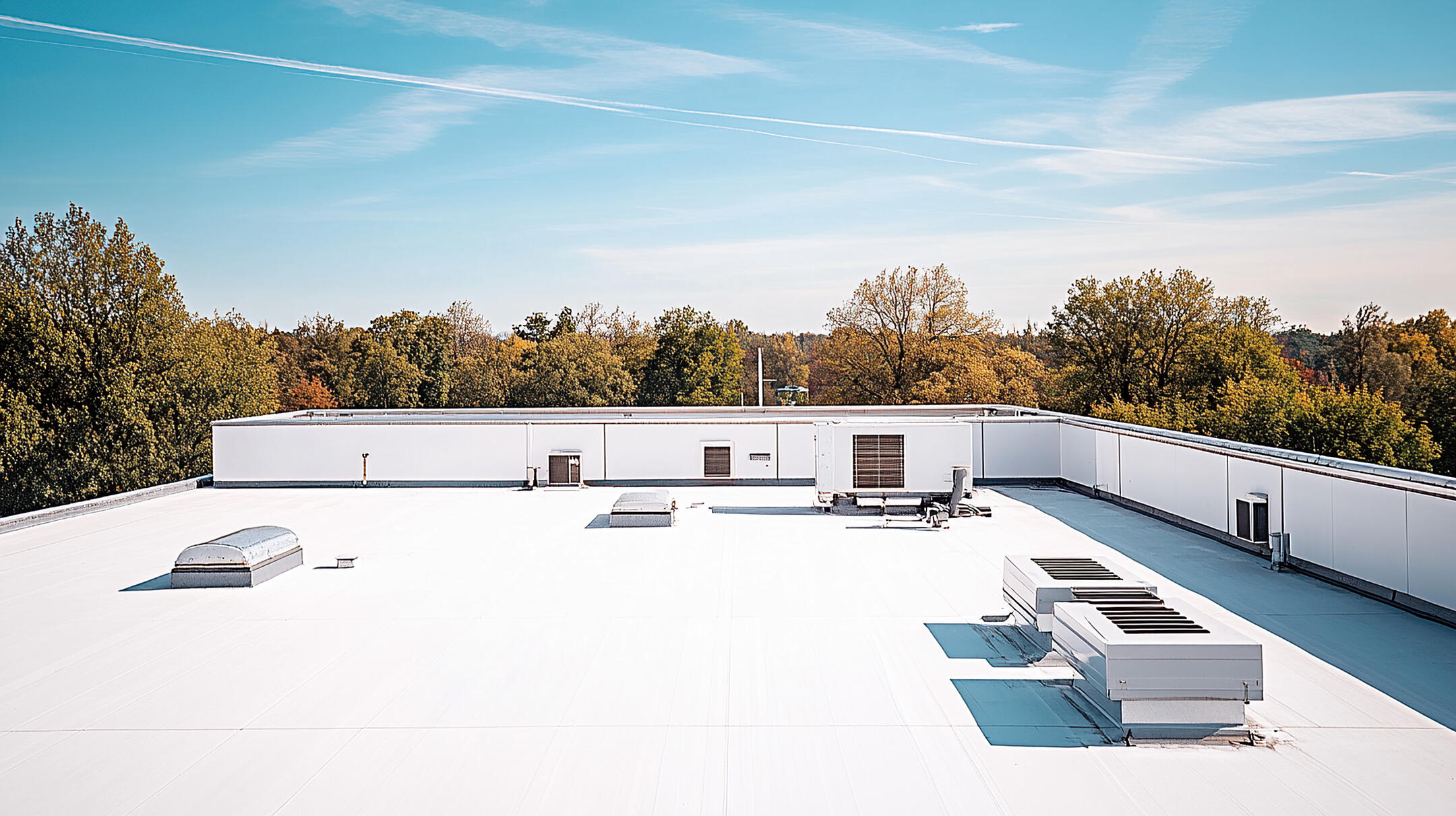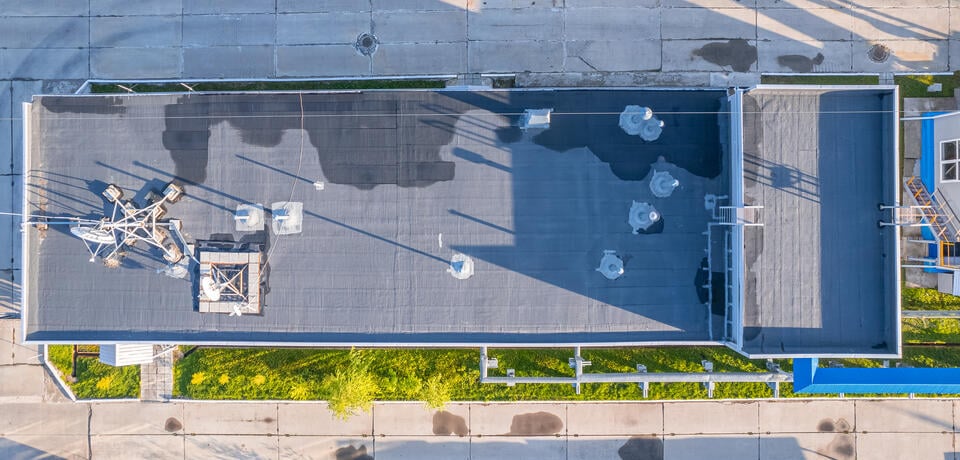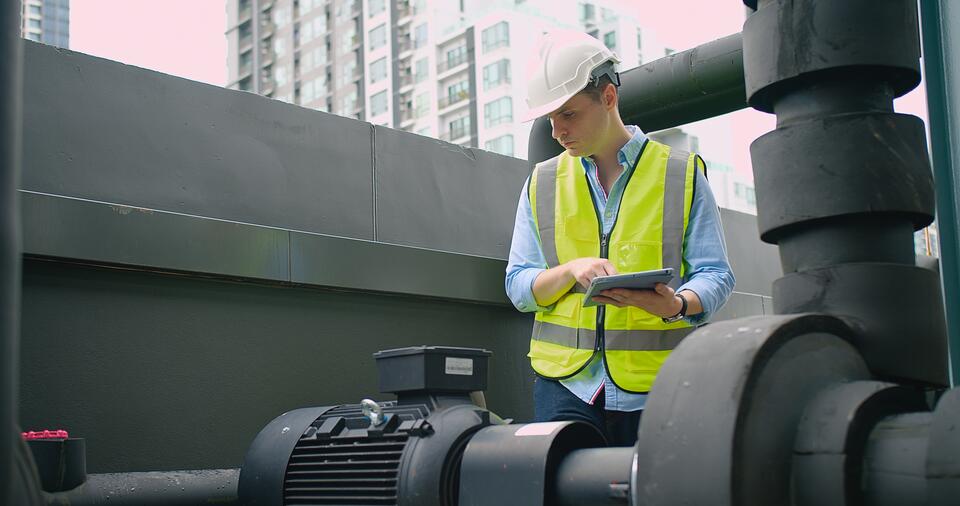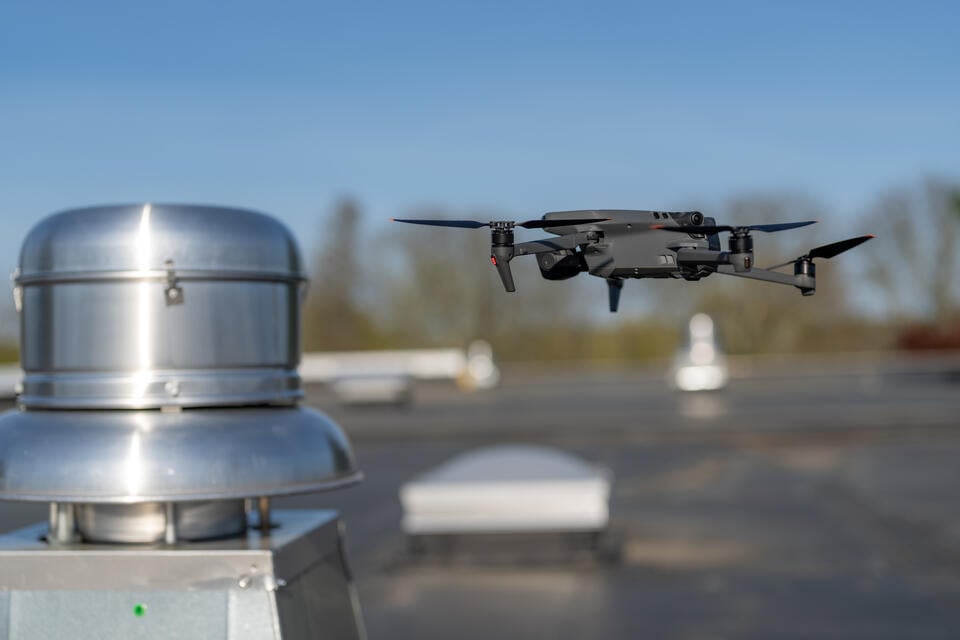
The Importance of Commercial Roof Inspections: Protect Your Investment
When was the last time you had your commercial roof inspected? If you’re like many property owners, it might not be at the top of your priority list—but overlooking roof maintenance can lead to costly repairs and disruptions to business operations. A commercial roof inspection is an essential step in protecting your investment, ensuring safety, and maintaining the lifespan of your roof. In this blog, we’ll explore the following points to help you understand why roof inspections should be a regular part of your property maintenance routine:
- The risks of neglecting a commercial roof inspection
- The benefits of regular inspections
- A closer look at the parts of a commercial roof inspection
- How to choose the right partner for your roof inspection needs
The Risks of Neglecting a Commercial Roof Inspection

Ignoring regular roof inspections can turn small issues into significant problems, costing property owners both time and money. Routine checks are essential to catch potential issues early and avoid costly consequences down the line.
Water leaks are a common issue that often go unnoticed until they cause serious damage. Hidden leaks within the roof can lead to structural problems, mold growth, and expensive repairs if left unchecked. Regular inspections can help identify these issues before they escalate.
Every roof has a natural lifespan, but neglecting maintenance can drastically shorten it. Small problems, such as minor cracks or damaged flashing, can quickly worsen and compromise the integrity of the entire roof. Early detection through inspections can help preserve your roof’s longevity.
Neglected roofs are also more expensive in the long run. Small, affordable repairs can be addressed during routine maintenance, but ignoring problems can lead to emergency fixes or even complete roof replacements, which require a significant financial investment.
Additionally, a poorly maintained roof can impact your business operations. Leaks, cracks, or falling debris can pose safety risks for employees and disrupt daily activities. Routine inspections ensure your roof remains in good condition, reducing downtime and keeping your business running smoothly.
The Benefits of Regular Roof Inspections
Routine commercial roof inspections aren’t just about avoiding risks—they provide tangible benefits, including financial savings and peace of mind.
- Early Issue Detection: Frequent inspections catch problems before they escalate, helping you save on repair costs and plan maintenance more strategically.
- Prolonged Roof Longevity: Regular maintenance extends your roof’s lifespan, delaying the need for a costly replacement.
- Optimized Building Performance: A well-maintained roof improves insulation and energy efficiency, reducing heating and cooling costs over time.
- Compliance with Insurance Requirements: Many insurance policies require regular roof inspections to remain valid. This ensures you’re protected in case of natural disasters or unexpected damage.
- Enhanced Safety: Protect your employees, tenants, and visitors by ensuring your property remains safe and sound.
5 Parts of a Commercial Roof Inspection

What exactly happens during a commercial roof inspection? Here’s a detailed breakdown of the key components, so you know what to expect.
1. Exterior Inspection
The first step in a commercial roof inspection is examining the exterior surface of the roof. This involves a thorough check of the surface condition to identify any cracks, blisters, or bubbles in the roofing membrane. These issues can compromise the roof’s ability to protect the building and may lead to leaks if left unaddressed. Flashings and seals around edges, vents, and other penetrations are inspected to ensure they are secure and intact, as any gaps or damage can allow water to seep through. The drainage system also receives close attention, with inspectors verifying that gutters and drains are clear and functioning properly. Clogged or damaged drainage can lead to standing water, which puts unnecessary stress on the roof and increases the risk of leaks and structural damage.
2. Interior Assessment
The interior of the building is carefully assessed for signs of roof-related issues. Inspectors look for water stains on ceilings and walls, which could indicate leaks. Mold growth is another key factor, as it not only points to moisture problems but also poses health risks to building occupants. Structural damage, such as sagging ceilings or compromised support beams, is also evaluated because these issues often originate from prolonged roof leaks or water infiltration. This part of the inspection is vital to detecting hidden problems that may not be visible from the roof’s exterior.
3. Structural Integrity Evaluation
The roof’s structural components, including framing and support systems, are carefully evaluated to ensure they remain sound. Inspectors check for any weaknesses or damage, particularly after severe weather events such as storms, hurricanes, or heavy snowfall. These events can place significant stress on a roof, leading to compromised structural integrity. Identifying and addressing these issues early can prevent costly repairs or even full roof replacement down the line. A strong, stable roof is essential for the safety and longevity of the entire building.
4. HVAC and Equipment Inspection
Many commercial roofs house important equipment, such as HVAC systems, vents, and other machinery. Inspectors examine the areas around these rooftop units for signs of wear and tear, which could cause leaks or damage to the roof itself. Improperly installed or maintained equipment can result in cracks, punctures, or other issues with the roof membrane. By ensuring that this equipment is properly secured and maintained, inspectors help prevent unnecessary damage and extend the lifespan of the roof.
5. Documentation and Reporting
At the end of the inspection, a comprehensive report is prepared to document the findings. This report typically includes a detailed summary of any issues discovered during the inspection, along with photographs to provide visual evidence. Inspectors also include recommendations for necessary repairs, upgrades, or maintenance to address current problems and prevent future ones. This documentation not only helps building owners or managers understand the condition of their roof but also serves as a valuable resource for planning and budgeting future maintenance or repairs.
Choosing the Right Partner for Your Roof Inspection

Not all roofing contractors or companies are created equal. Selecting the right team for inspections is essential to ensure your roof gets the attention it deserves. A thorough inspection can identify potential problems early, saving you time, money, and stress down the road. Here’s what to look for when choosing a roofing partner.
Look for Expertise
Experience matters when it comes to roof inspections. A team with a proven track record in commercial roof inspections brings the knowledge and skills to identify both visible issues and hidden problems that could escalate later. Experienced inspectors understand the nuances of different roofing materials, weather impacts, and structural requirements, ensuring that no detail is overlooked. The right partner doesn’t just evaluate your roof; they provide actionable solutions tailored to your specific situation. Always ask about their certifications, training, and years of experience in the industry.
Reputation Matters
A company’s reputation speaks volumes about its reliability and service quality. Take the time to research reviews, testimonials, and case studies from previous clients. These firsthand accounts can give you insight into how the company operates, the quality of their work, and their commitment to customer satisfaction. Look for consistent positive feedback and evidence of successful projects similar to your needs. A reputable roofing company should be transparent, professional, and willing to address any concerns you have before committing to their services.
Comprehensive Services
Roof inspections are just the beginning. The best roofing companies go beyond inspections to offer repairs, maintenance, and replacements, providing a one-stop solution for all your roofing needs. This comprehensive approach ensures that you don’t have to juggle multiple contractors or worry about inconsistent service. Whether it’s fixing small leaks, addressing storm damage, or planning a full roof replacement, a company that offers a full range of services gives you peace of mind knowing they can handle every aspect of your roof’s care.
Free Estimates
Budgeting for a roofing project can be challenging, but free estimates make it easier to plan without any upfront financial pressure. Many trusted roofing companies, like Better Way Roofing, offer detailed, no-obligation estimates that outline the scope of work and associated costs. This transparency allows you to compare options and make an informed decision. Plus, a free estimate shows that the company is confident in its ability to meet your needs and earn your business. Always look for roofing companies that are willing to provide clear pricing without hidden fees.
Expert Commercial Roofing Services You Can Trust
At Better Way Roofing, we pride ourselves on delivering unmatched expertise, reliability, and comprehensive services for all your commercial roofing needs. Our experienced team is dedicated to providing thorough inspections, accurate solutions, and exceptional customer service to ensure your roof remains in top condition. With a strong reputation for excellence and free, no-obligation estimates, we make the process seamless and stress-free. Trust Better Way Roofing to protect your investment and give you peace of mind. Contact us today to schedule your free commercial roof inspection and experience the Better Way difference!
